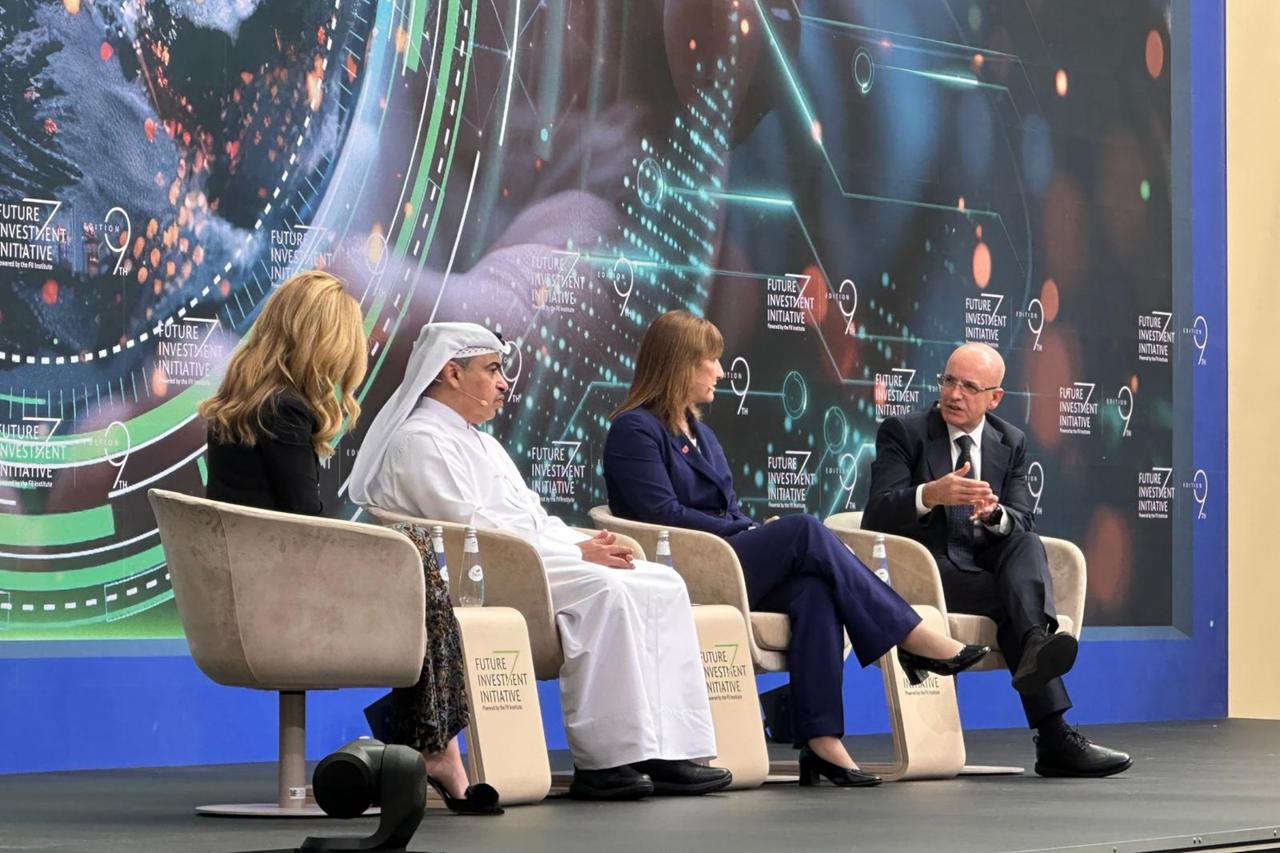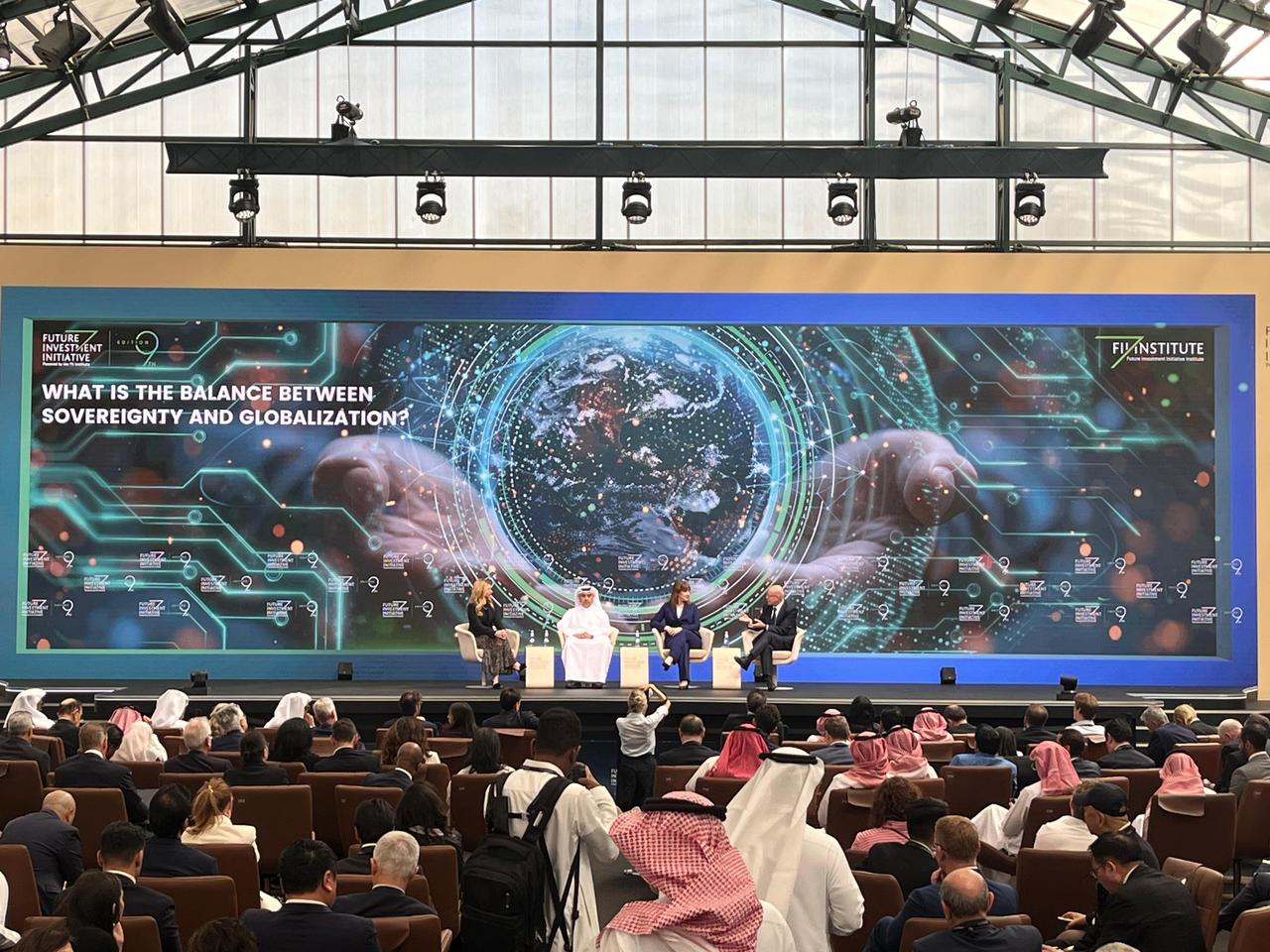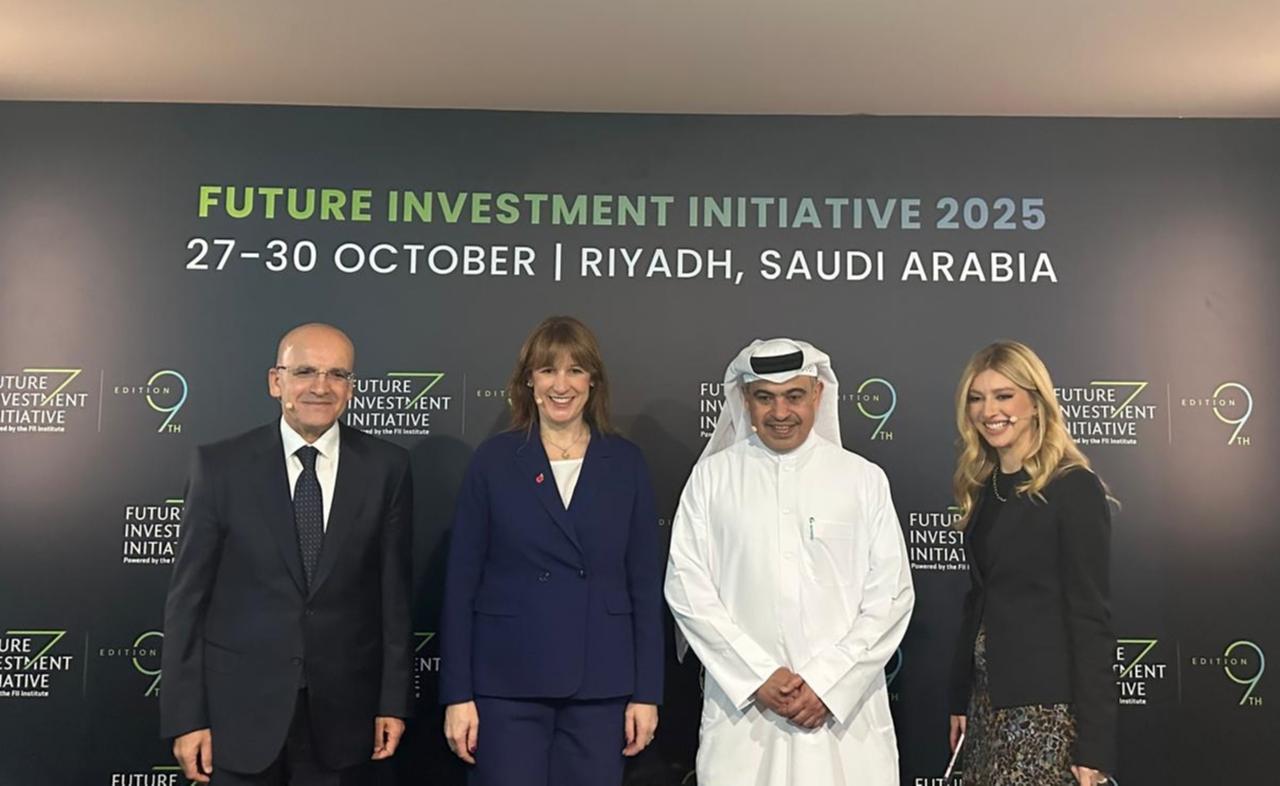
Türkiye is eager to attract global tech giants to invest in the country, but some investors say the "trusted cloud" data-localization rules create obstacles, and the government has not joined the EU’s Digital Markets Act as it wants to see what works first, Treasury and Finance Minister Mehmet Simsek said Tuesday.
Speaking at the 9th Future Investment Initiative (FII) forum in Riyadh during a panel titled "The Balance Between Sovereignty and Globalization," Simsek said Türkiye prefers to take a measured approach toward the EU’s digital legislation, which aims to regulate the market power of major online platforms.
"We first want to see what works," he said, adding that digital transformation can have a "tremendous impact" on productivity. Simsek noted that while Türkiye wants to remain open to global technology cooperation, it is also pursuing digital sovereignty in key areas of cybersecurity and data protection.
The Digital Markets Act (DMA) is a European Union law that regulates major online platforms, known as “gatekeepers,” to ensure fair and competitive digital markets. It sets clear rules on what these companies can and cannot do, aiming to curb anti-competitive behavior without replacing existing EU competition laws. Proposed in 2020, it was adopted in September 2022 and became law the following month.
The minister acknowledged that Türkiye’s policy requiring data to be stored locally has drawn criticism from some investors who view it as a barrier. "Some investors say these regulations create obstacles for them," Simsek said.
He emphasized, however, that data localization is part of Türkiye’s broader effort to strengthen national cybersecurity and ensure the safety of user information. The policy forms a key component of the country’s long-term digital resilience strategy, he added.
Simsek said Türkiye continues to expand its digital infrastructure and workforce to support innovation and global competitiveness. "We are building our own Starlink-style low-orbit satellite network, expanding fiber infrastructure, and preparing for 5G+ deployment," he said.
He also pointed to the strength of Türkiye’s human capital. "Each year, about 940,000 students graduate from universities, and an increasing number specialize in technology-related fields," he noted.

Simsek outlined Türkiye’s commitment to keeping its economy open while enhancing domestic capabilities. He said the country continues to benefit from both regional and global integration but must also take steps to reduce exposure to external risks.
"In sectors such as energy supply security, healthcare and biotechnology, and artificial intelligence, we attach importance to remaining open to cooperation while developing our own capabilities," he said, adding that strengthening data privacy and cybersecurity has become increasingly essential.
While emphasizing the benefits of globalization, Simsek acknowledged its uneven impact, saying that governments must address the resulting social and economic imbalances. "If we can mitigate the negative effects of globalization through sound policies, we can reduce public backlash and preserve the benefits of open markets," he said.
He noted that Türkiye is entering a phase of "risk reduction" rather than decoupling from the global economy, aiming to reinforce national systems while maintaining active participation in international trade and investment.

Simsek added that free trade agreements remain an effective tool against protectionism, highlighting Türkiye’s ongoing trade diplomacy with key partners. "We are close to finalizing a free trade agreement with the United Kingdom and continue working on updating the Customs Union with the European Union to include public procurement, services, and agriculture," he said.
Türkiye has long sought to modernize its 1995 Customs Union agreement with the EU, which currently covers only industrial goods and processed agricultural products. The update aims to expand the framework to reflect the structure of today’s economy, allowing greater access for Turkish exporters in services and public tenders, while also addressing trade barriers that have emerged since the deal’s inception.
On tariff policies, Simsek cautioned that customs duties serve as a form of protectionism that does not benefit economies in the long run, though he acknowledged the political and economic sensitivities behind such measures. "If global trade — the engine of economic growth — stalls, the world economy may struggle to sustain even 3% annual growth," he said.
In 2024, the global economy grew by 3.3%, according to the IMF, which expects the rate to slow to 3.2% in 2025 and 3.1% in 2026, its latest World Economic Outlook report in October showed, warning that prolonged uncertainty, rising protectionism, and labor supply shocks could weigh on growth.